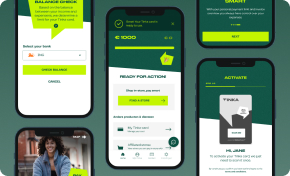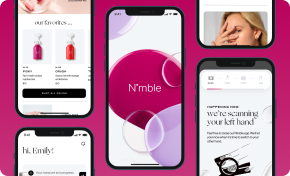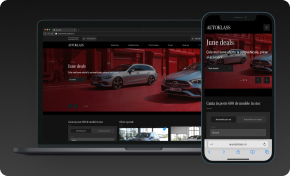The digital environment and how companies function and interact with consumers are rapidly changing. Mobile applications have supported this transformation, enabling companies to transform processes, increase engagement, and achieve growth in previously impossible ways. In this environment, mobile apps have become more than just a convenient way to do business—they are critical for maintaining smooth and effective communication and business functioning.
This article examines mobile applications’ potential to transform businesses and explains why it is important to consider developing bespoke applications.
Begin Your Digital Transformation Journey
Customized Strategies to Lead Your Business into the Digital Age
Explore Digital TransformationThe Rise of Mobile Applications in Business
Mobile applications have become popular over the last few years and have revolutionized business and consumer experience. Businesses continuously use mobile applications to meet their audience’s needs, which has shifted towards providing personalized, accessible, and timely information.
A report from Statista shows that mobile apps generated $935 billion in revenue in 2023 and are expected to grow in the future. As of mid-2023, almost 96% of the global digital population used a mobile device to connect to the internet, while the number of mobile app downloads worldwide is projected to reach 258 billion by 2027. These statistics show why mobile apps have become so important in today’s business environment.
Why Your Business Needs a Mobile App
Mobile applications allow organizations to communicate with their clients personally and improve the relationship. App-based services are more convenient than website-based services as they give customers a unique and easily accessible interface to your products or services. A feature such as push notifications will notify users of real-time updates, promotions, and offers, thus creating a constant interactive session. Moreover, mobile applications enhance operations through integration with current systems, process optimization through automation, and general optimization of business processes. This means that the customers can access the products and services quickly and with ease, and they will be loyal.
Mobile App Development for a Competitive Edge
Developing Mobile Apps that Engage Your Customers with Your Brand
Explore Mobile App DevelopmentThere are real-world examples of how mobile apps transform the business. For example, Domino’s Pizza used a mobile app to bring in the ‘pizza tracker’, allowing customers to track the status of their orders in real-time. Not only did this increase customer satisfaction, but it also smoothed out their delivery operations, resulting in a 30% sales increase in their digital channels. Similarly, Uber’s mobile app disrupted the transportation industry by giving real-time driver tracking and ease of payment options, becoming the gold standard for convenience and usability. These stories of success prove the essential part that mobile apps play in propelling business growth and answering the demands of today’s demanding customers.
Amazon: Customer Habits
On top of all of the above, mobile apps offer businesses valuable data and insights they can use to inform key business decisions. Companies can use user behavior and preferences to customize offerings to meet customer needs. For instance, Amazon’s mobile app collects the user’s browsing and purchasing habits data to make personalized recommendations and targeted promotions. Using this data-driven approach not only does it improve the customer experience but also increases sales and customer retention. Additionally, mobile apps can connect to other business systems, like CRM or ERP, to automate processes and enhance efficiency.
Sephora: Customer Loyalty
Another seemingly obvious example is the mobile app created by Sephora, a global beauty retailer. The app from Sephora features virtual try-ons, personalized product recommendations, and a seamless shopping experience. Furthermore, the app is integrated with Sephora loyalty to allow customers to earn and redeem points quickly, boosting customer loyalty and engagement. Besides, the app gives Sephora insights into customer preferences and trends to customize its marketing strategies and product offerings. The listed real-world examples of mobile apps show how apps enable businesses to fundamentally transform their operations, increase customer engagement, and spur growth.
Starbucks: Enhancing Customer Engagement
This is the perfect example of a mobile app that impacts customer engagement and operations optimization. The Starbucks app allows you to order ahead of time, select the location you’d like to pick up from and pay cashless. This level of convenience removes much of the waiting time and improves the customer experience.
Its standout feature, Starbucks Rewards, is a loyalty program gamified to entice customers to purchase repeatedly. Every purchase earns the customer points, which can be redeemed for free items. In addition, the app offers personalized offers based on the user’s purchase history and preferences, which means that promotions are highly relevant. As a result of these features, Starbucks’ Rewards members’ revenue increased by 23%, and they drove nearly half of Starbucks’ total U.S. revenue in 2021. In addition, the app seamlessly integrates with social media platforms to enhance customer engagement.
Key Features of Successful Business Apps
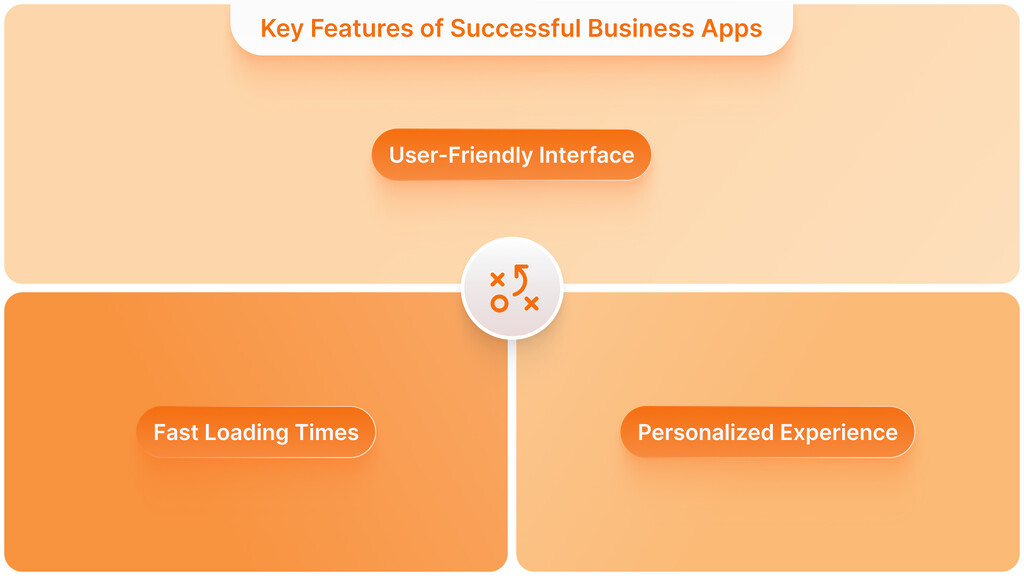
To create a truly different business app, it is necessary to concentrate on basic functions that meet users’ expectations, attract them, and prevent them from switching from one app to another. Here are the critical elements that make a business app effective:
- User-Friendly Interface (UI): A great user experience is about simplicity and intuitiveness. Your app must be navigable by users, with clean menus, an easy-to-navigate interface, and minimal clutter. A pleasing design additionally ensures that you leave an impression.
- Fast Loading Times: App success is non-negotiable when it comes to speed. Studies show that users do not hesitate to abandon apps that load over three seconds. You can optimize your app’s performance by compressing images, reducing code, using content delivery networks (CDNs), etc.
- Personalized Experience: Apps use data analytics and machine learning to create recommendations, content, and experiences tailored to individuals. Apps that can change their interfaces based on user preferences or recommend products based on a user’s browsing history see much higher engagement rates.
Invest in Professional UX/UI Design to Create Impactful Interfaces
Designing Seamless User Journeys That Boost Interaction and Conversion Rates
Discover UI/UX DesignTips for Incorporating These Features
- Conduct User Testing: Before launching, test your app with real users to determine what is causing pain and how to improve.
- Optimize for Devices and Platforms: Make sure your app works beautifully on Android and iOS devices.
- Leverage Analytics Tools: Track user behavior and preferences using analytics and continuously refine personalized features.
- Adopt Agile Development: The iterative approach allows you to incorporate feedback and continuously improve.
Ensuring Security and Privacy in Your App
With data breaches and cyber attacks all too common these days, it’s critical to ensure the security and privacy of your mobile app. Apps hold sensitive personal information, and not keeping this data safe can hurt your reputation and cause customers to lose faith in your app.
Why does security and privacy matter?
- User Trust: Additionally, a secure app instills confidence, and users can adopt and retain the app.
- Regulatory Compliance: Remember to comply with data protection laws such as GDPR or CCPA to avoid getting legal penalties.
- Business Continuity: Operations are disrupted, and significant financial losses can occur due to security breaches.
Best Practices for Maintaining Security and User Trust
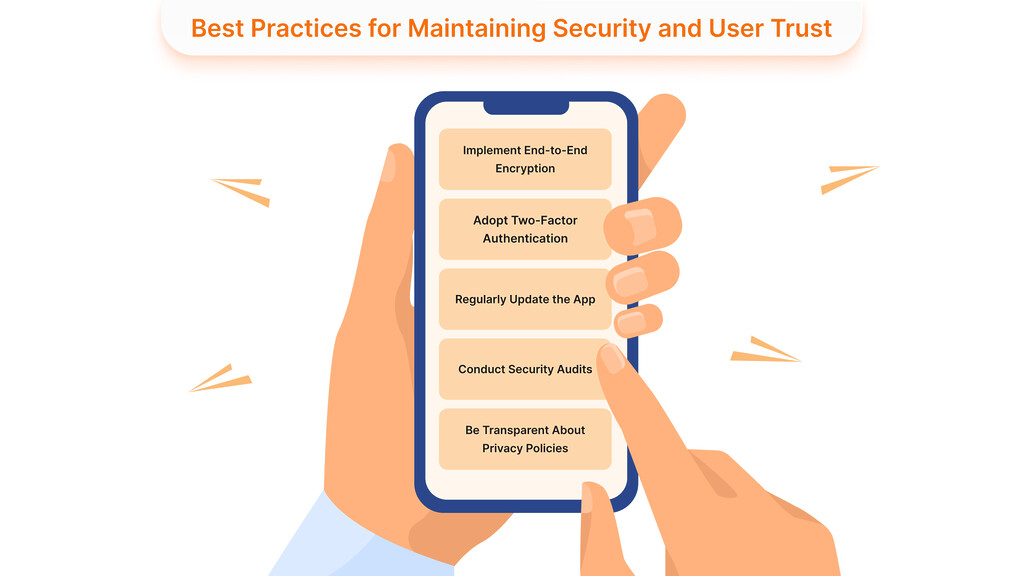
- Implement End-to-End Encryption: This will prevent data transmission without protection or unencrypted data, thus preventing third parties from gaining access to it.
- Adopt Two-Factor Authentication (2FA). This adds an extra layer of verification to prevent the hacking of user accounts.
- Regularly Update the App: Push updates that include the latest security patches to stay one step ahead of vulnerabilities.
- Conduct Security Audits: Periodic assessments assist in identifying risks and correcting them before they become problematic.
- Be Transparent About Privacy Policies: Explain clearly how user data will be used and give the users control over their information.
How Mobile Apps Keep You Connected with Customers
Today, mobile apps are a solid bridge between businesses and their customers. They let them talk to each other in real-time, which helps build a stronger bond. Apps break free from the cycle of traditional websites or email campaigns as a direct and immediate channel to reach customers, guaranteeing that businesses are connected and reactive to their customers’ needs. As customers are never without their smartphones, businesses can use their apps to provide timely updates, promotions, or even more personalized messages directly to customers.
Push notifications are one of the most valuable ways to keep a real-time connection between two parties out of the app. Businesses can use these alerts to announce sales, tell customers about their order progress, or send reminders so customers never miss out on important information. For instance, retail apps like Amazon use push notifications to notify customers about flash sales and personalized product recommendations, which leads to increased engagement of customers toward purchasing products. Furthermore, in-app chat support provides connectivity by empowering customers to get help immediately, increasing satisfaction and loyalty. Companies like Zendesk and Shopify also integrate live chat in their apps to resolve queries and promptly build trust with their users.
Leveraging Analytics for Business Growth
Business growth can be driven by your app’s analytics, which is a goldmine for understanding customer behavior and preferences. But by tracking user actions, we can see patterns, like which features are the most popular, where we lose users along their journey, and what’s causing them to engage. The benefits of this are that it helps businesses make data-driven decisions to improve their app functionality, enhance their user experience, and optimize their marketing strategy.
For instance, Netflix uses app analytics to track viewing history and interests, recommending personalized content to users. This greatly personalizes the experience, enhancing user retention and satisfaction. Businesses also adopt this approach, collecting user information using Google Analytics, Mixpanel, or Firebase.
Strategies for Using Analytics Effectively
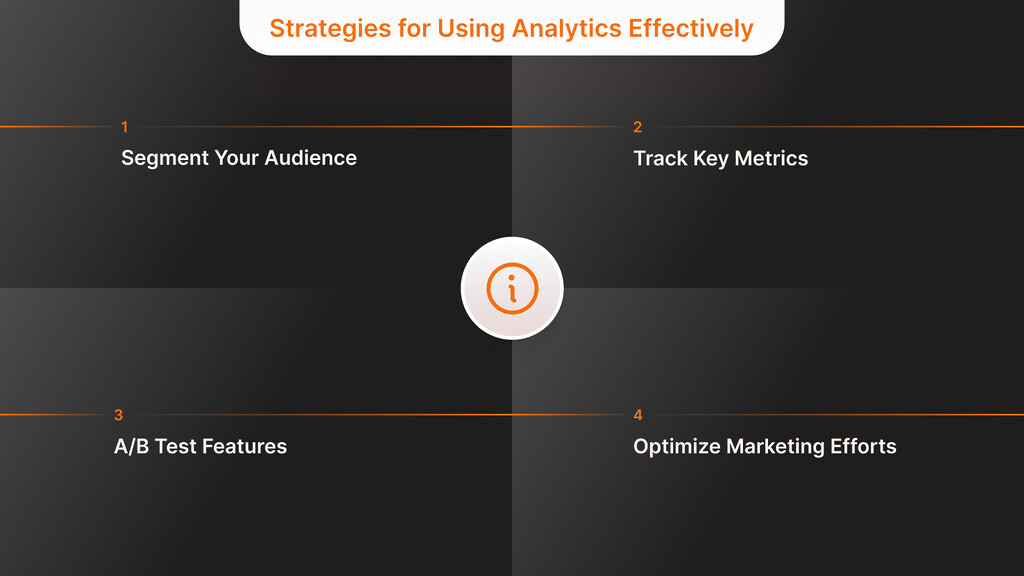
- Segment Your Audience: Users can be categorized by behavior, preferences, or demographics and receive targeted campaigns.
- Track Key Metrics: Retention rates and your app’s success. You should monitor retention rates, active user counts, and in-app conversions.
- A/B Test Features: Try different versions of features or designs based on what you learn from users.
- Optimize Marketing Efforts: Use analytics to determine which campaigns provide the best ROI and what adjustments to make in your future strategy.
Navigating Challenges in Mobile App Development
Developing a mobile app isn’t easy. There are many technical and strategic obstacles to overcome. However, one of the biggest challenges is choosing the right platform. Businesses must decide whether to build for iOS or Android or follow a cross-platform solution. This decision is important as each platform has its audience and technical specifications, and we want to reach the desired user base.
However, design considerations also play a big part. Balancing aesthetics with function is key to providing a smooth user experience. Overloading can set into an app due to overloading, while underdelivering leaves users dissatisfied. Additionally, ensuring it works on different devices and operating systems is nerve-wracking, especially since technology changes at lightning speed.
At HyperSense, we address these challenges with a methodical, expertise-driven approach. We conduct in-depth consultations with clients to pick a platform that matches their business goals and target audiences. With our highly experienced group of developers who utilize frameworks like React Native and Flutter, we develop scalable, high-quality apps that run gracefully on all platforms.
Redefine Your IT Strategy with Our Consultancy
Customized Solutions for Optimal Performance
Discover IT ConsultingThe Future of Mobile Apps in Business
The mobile app industry is experiencing rapid growth and innovation as trends emerge, changing how businesses operate and communicate with customers. 5G technology, for instance, will transform app performance with faster load times, lower latency, and improved features, such as augmented reality (AR) and virtual reality (VR). This will open up new use cases for immersive experiences in retail, gaming, and training applications.
A big trend will be Internet of Things (IoT) integration, where apps will work together with smart devices to make life easier in industries such as healthcare, manufacturing, and home automation. AI and machine learning will also help with further personalization, automate customer support, and offer predictive analytics to enhance business strategies.
To remain competitive in this dynamic landscape, businesses must be ready to accept these advancements and invest their resources into mobile solutions that integrate with their operations. A mobile app is no longer an option: your business must grow, connect with its customers, and stay up to date. HyperSense is equipped to help your business use cutting-edge technologies to keep pace in an increasingly digital world. But there is no time like the present to prepare your business for a mobile-driven future of commerce.
Empower Your Business with the Right Mobile App Solution
In this fast-moving digitized world, businesses increasingly rely on mobile applications to keep them dynamic, connected, and competitive. Through increased efficiency, streamlining of business operations, and actionable insights, mobile apps enable businesses to thrive and adjust to the changing demands of the marketplace. As new technology such as 5G, AI, and IoT will shape the future, investing in a custom mobile application has never been more critical.
If you are ready to grow your business, we are prepared to help. Our track record of delivering innovative, tailor-made mobile solutions will bring your vision to reality. Start transforming your business today with HyperSense—contact us!
Why do businesses need mobile apps today?
Businesses need mobile apps as they increase customer engagement, optimize day-to-day activities, and offer a place where customers can be personalized in such a way. The businesses become accessible 24/7, which makes customers satisfied and loyal.
What can mobile apps do to enhance customer engagement?
Some features, such as push notifications, in-app messaging, and loyalty programs, drastically improve customer engagement. These tools allow businesses to communicate directly with customers, utilizing real-time updates and personalized experiences.
What are some real-life examples of mobile app integrations, and what made them successful?
An excellent example of these two companies is Starbucks and Domino’s Pizza. Starbucks’s app includes mobile payments, an order-ahead feature, and a loyalty program, which makes customers’ lives easy and boosts their engagement. Domino’s app integrates real-time order tracking and many payment systems, making it easy to track orders. This has dramatically improved operational efficiency and customer satisfaction.
What would be the important features of a successful business app?
For a business app to be successful, it needs to offer a user-friendly interface, fast loading times, and personalized experiences. This ensures users can use the app effectively, receive quick responses, and receive content tailored to their preferences.
What can businesses do to secure and protect the privacy of their mobile apps?
Robust security measures, including encryption, secure authentication methods, and regular updates, can ensure businesses’ security and privacy. To protect user data and maintain trust, businesses must also comply with regulations like GDPR.
What do mobile apps help with business connectivity?
Mobile apps improve business connectivity by allowing real-time communication and collaboration. Instant messaging, video conferencing, and file sharing enable seamless employee interaction with each other and the customer.
How does app analytics contribute to business growth?
User data gives companies insights into what customers want and how they behave, which can help them customize their offerings. Analyzing user data allows businesses to improve their products and services, improve the customer experience, and grow.
What do you think are the challenges in mobile app development?
As with any project, common challenges include choosing the right platform, designing an intuitive interface, and ensuring the platform functions seamlessly. App development experience and a good knowledge of business needs are required to address these challenges.


